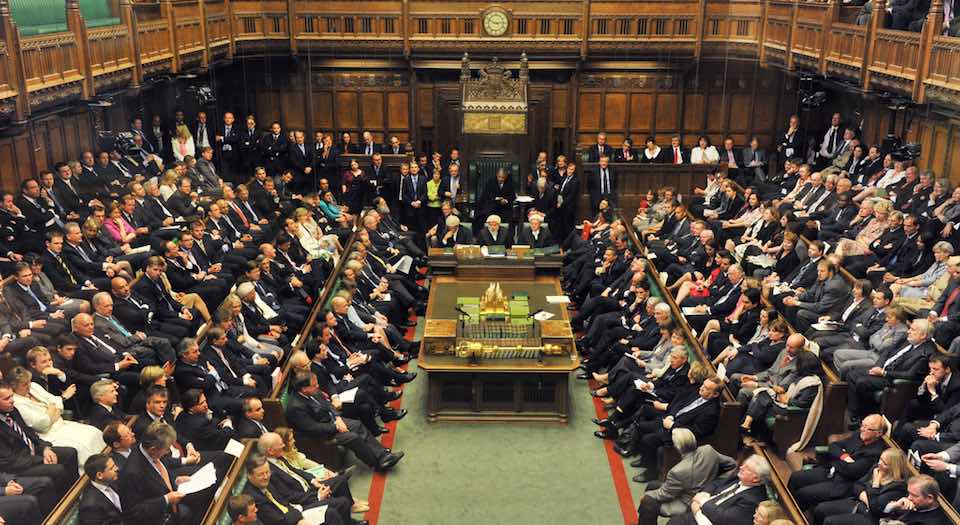The Remain campaign’s parliamentary paternalism
A note to lawyers: parliament is sovereign because it expresses the will of the people.

Over 1,000 lawyers have signed a letter to the UK prime minister, which as of today (Wednesday) will be Theresa May, calling for Article 50 only to be invoked through a parliamentary vote. The letter says that while the result of the referendum should be ‘acknowledged’, the vote was ‘advisory’, ‘not legally binding’, and it was won on the basis of ‘misrepresentation’. The letter invites the prime minister to appoint a Royal Commission to report on the possible outcome of Brexit before putting the matter to a parliamentary vote. The letter’s authors appeal to ‘parliamentary sovereignty’, claiming that the government’s potential use of the Royal Prerogative to enact Article 50 would represent a violation of parliament’s sovereign role in the constitutional order.
A Royal Commission? Are these lawyers serious? You could hardly claim that the problem with the referendum was a lack of expert advice. Every expert in the world lined up to warn the public against voting Brexit. From the IMF and the World Bank to the Bank of England, experts were falling over themselves to warn us of the economic dangers of voting to leave the EU. And the public still said no. That is what these lawyers cannot come to terms with: that people voted Leave for reasons that went beyond black-and-white numbers. They didn’t see the world in the terms presented to them by economic experts from multinational banks. People voted to leave on the basis of their own experiences and convictions. The idea that a Royal Commission could somehow produce some new economic facts that would sway the electorate towards remaining is bizarre.
But despite the strange practical suggestions in the letter, what is more galling is the sight of these lawyers attempting to use parliamentary sovereignty to prevent the implementation of the referendum. They argue that parliament is sovereign and MPs are therefore required to use their judgement when voting in parliament. So, notwithstanding the largest political mandate in British history, MPs should be free to reject the vote and rely on what they think is best for their constituents, if their ‘judgement’ tells them as much.
Let’s be clear: the scenario above is not parliamentary sovereignty. Rather, it would be an attempt to manage the public will, to control it and fudge it into oblivion. It’s better described as parliamentary paternalism.
The notion of parliamentary sovereignty rests on the idea that parliament is the institution most aligned with the will of the people. Parliament came to be seen as ‘sovereign’ after the English Civil War, because of the radical demand that the people should have a say in who governs them. It is no accident that the idea of parliamentary sovereignty emerged at the same time as the call for increased suffrage during the 17th century – both were tied to the historic shifting of power from the monarch to the people. Later thinkers like AV Dicey came to recognise that parliamentary sovereignty is important because parliament is best placed to express the will of the public, the ‘wisdom of the community’. The historical reason, then, why parliamentary sovereignty is considered a good thing is not because politicians know what is best for us; it’s because the guiding force of public life should be the will of the people. So it is ironic that lawyers now call on parliamentary sovereignty to justify overthrowing the greatest and most direct expression of public will in British political history.
The correct way to enact Article 50 should have been resolved months ago. The fact that the establishment is confused about how to do what they promised in the run-up to the referendum is an embarrassment. Now, the people have spoken and their will must be enacted. How this is done is academic and makes no difference whatsoever to anyone outside of London law offices. Our hapless leaders may be clueless about how to carry out their promises, but they need to get on with it.
Luke Gittos is law editor at spiked, a solicitor practising criminal law and convenor of the London Legal Salon. He is the author of Why Rape Culture is a Dangerous Myth: From Steubenville to Ched Evans. (Buy this book from Amazon(UK).)
To enquire about republishing spiked’s content, a right to reply or to request a correction, please contact the managing editor, Viv Regan.









Comments
Want to join the conversation?
Only spiked supporters and patrons, who donate regularly to us, can comment on our articles.